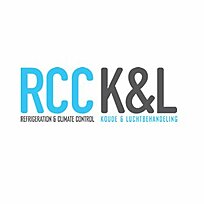
Use of natural refrigerants on board of ships eases the burden on the environment.
Investeren in de toekomst: het gebruik van natuurlijke koudemiddelen aan boord van schepen verlicht de druk op het milieu.
Author(s) : WITT M.
Type of article: Article, Case study
Summary
In its UN environmental report, the United Nations concluded that the only way to limit the effects of global climate change is to radically reduce emissions of greenhouse gases. The European Union has taken a leading role in this, having already passed, in 2006, a directive calling for the reduction of certain fluorinated greenhouse gases, which will come into effect in July. The 'F-Gas Directive' includes regulations specifying that refrigeration and air-conditioning systems have to be serviced regularly by qualified staff and tested to ensure they are not leaking. This aims to reduce greenhouse gas emissions. Eurammon is a joint European initiative of companies, institutions and individuals who advocate an increased use of natural refrigerants. This article describes two examples of refrigeration systems which use natural refrigerants (propane and an ammonia-carbon dioxide system) on board of seagoing vessels.
Details
- Original title: Investeren in de toekomst: het gebruik van natuurlijke koudemiddelen aan boord van schepen verlicht de druk op het milieu.
- Record ID : 2007-2814
- Languages: Dutch
- Source: Koude & Luchtbehandeling - vol. 100 - n. 7-8
- Publication date: 2007/08
Links
See other articles in this issue (1)
See the source
Indexing
-
Themes:
Ammonia;
Marine transport;
CO2;
Hydrocarbons - Keywords: Refrigerating system; Ship; Ammonia; Propane; Case study; Refrigerant; CO2
-
Research and development: investing in the future.
- Author(s) : JAHN K.
- Date : 2007/12
- Languages : English
- Source: ScanRef - vol. 36 - n. 6
View record
-
Utilisation des réfrigérants naturels à bord de...
- Date : 2007/10
- Languages : French
- Source: Cool Comf. - vol. 9 - n. 35
View record
-
Ammoniak (her)ontdekt voor scheepskoelinstallat...
- Author(s) : BERENDS E.
- Date : 2002/09
- Languages : Dutch
- Source: Koude & Luchtbehandeling - vol. 95 - n. 9
View record
-
Marine refrigeration plants for passenger ships...
- Author(s) : PIGANI L., BOSCOLO M., PAGAN N.
- Date : 2016/04
- Languages : English
- Source: International Journal of Refrigeration - Revue Internationale du Froid - vol. 64
- Formats : PDF
View record
-
Refrigerants: getting to grips with carbon diox...
- Author(s) : VESTERGAARD N. P.
- Date : 2004/01
- Languages : English
- Source: S. afr. Inst. Refrig. Air Cond. - vol. 106 - n. 1270
View record
